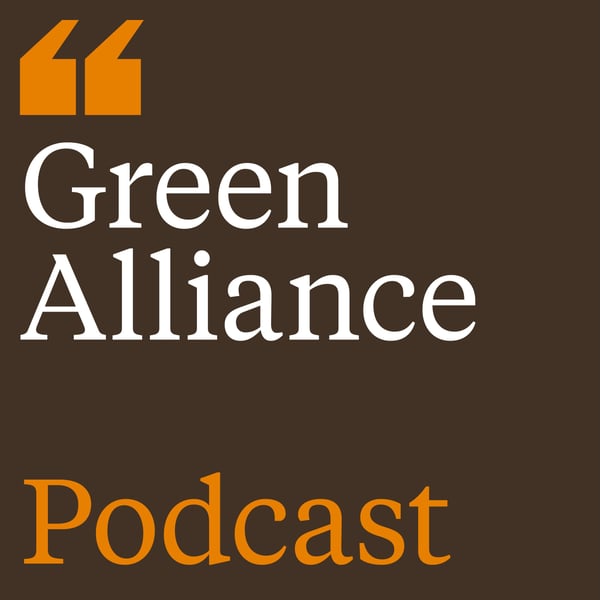What can the UK do to decarbonise shipping?
The Green Alliance Podcast
Green Alliance
4.9 • 34 Ratings
🗓️ 16 February 2023
⏱️ 27 minutes
🧾️ Download transcript
Summary
Transcript
Click on a timestamp to play from that location
| 0:00.0 | Welcome to the Green Alliance podcast. |
| 0:05.0 | We are the charity and think tank that's all about achieving ambitious leadership for the environment. |
| 0:09.0 | I'm Rosie Allen, a policy advisor at Green Alliance. |
| 0:13.0 | In comparison to other modes of transport, shipping can sometimes be overlooked when it comes to decarbonisation. |
| 0:20.0 | But in 2021, 95% of global trade was moved by sea. |
| 0:24.9 | If you look around you, it's likely that the nearby furniture, technology, or at least the |
| 0:29.1 | parts to make them, were at some point in a shipping container, heading overseas. One positive feature |
| 0:34.6 | that the shipping sector has, in order to make the system-wide changes needed to decarbonise |
| 0:38.3 | is that there is a global regulator, the International Maritime Organisation, or the IMO, which has the ability to set regulatory standards with international effect. |
| 0:48.3 | But how should the UK and the IMO balance the responsibility to push forward the policies needed to decarbonise |
| 0:55.2 | shipping at the pace required to limit global warming to 1.5 degrees. I'm joined by Dr Tristan |
| 1:01.6 | Smith, an associate professor at the UCL Energy Institute, co-founder of the Commercial Advisory |
| 1:07.2 | Service UMass, and a leading expert in low-carbon shipping. |
| 1:15.6 | So to start us off, I was hoping that you talk us through some of the barriers that are preventing |
| 1:21.6 | shipping decarbonisation from happening at the pace that it needs to. |
| 1:25.6 | Well, the key barrier is really an absence of regulation. |
| 1:29.3 | We do not have policies in place that drive ships away from using fossil fuels. |
| 1:35.3 | And the unfortunate reality, at least in shipping, it's not the case in all sectors of the economy. |
| 1:40.3 | The solutions that we need are likely to be more expensive than those that are coming from |
| 1:45.6 | fossil fuels and that's because of something that economists like to call the failure or the market |
| 1:50.5 | failure to internalize the negative externalities the fact that we have climate impacts that are caused |
| 1:55.7 | by burning fossil fuels that we aren't currently factoring into our costs into what we pay for |
... |
Transcript will be available on the free plan in -774 days. Upgrade to see the full transcript now.
Disclaimer: The podcast and artwork embedded on this page are from Green Alliance, and are the property of its owner and not affiliated with or endorsed by Tapesearch.
Generated transcripts are the property of Green Alliance and are distributed freely under the Fair Use doctrine. Transcripts generated by Tapesearch are not guaranteed to be accurate.
Copyright © Tapesearch 2025.

